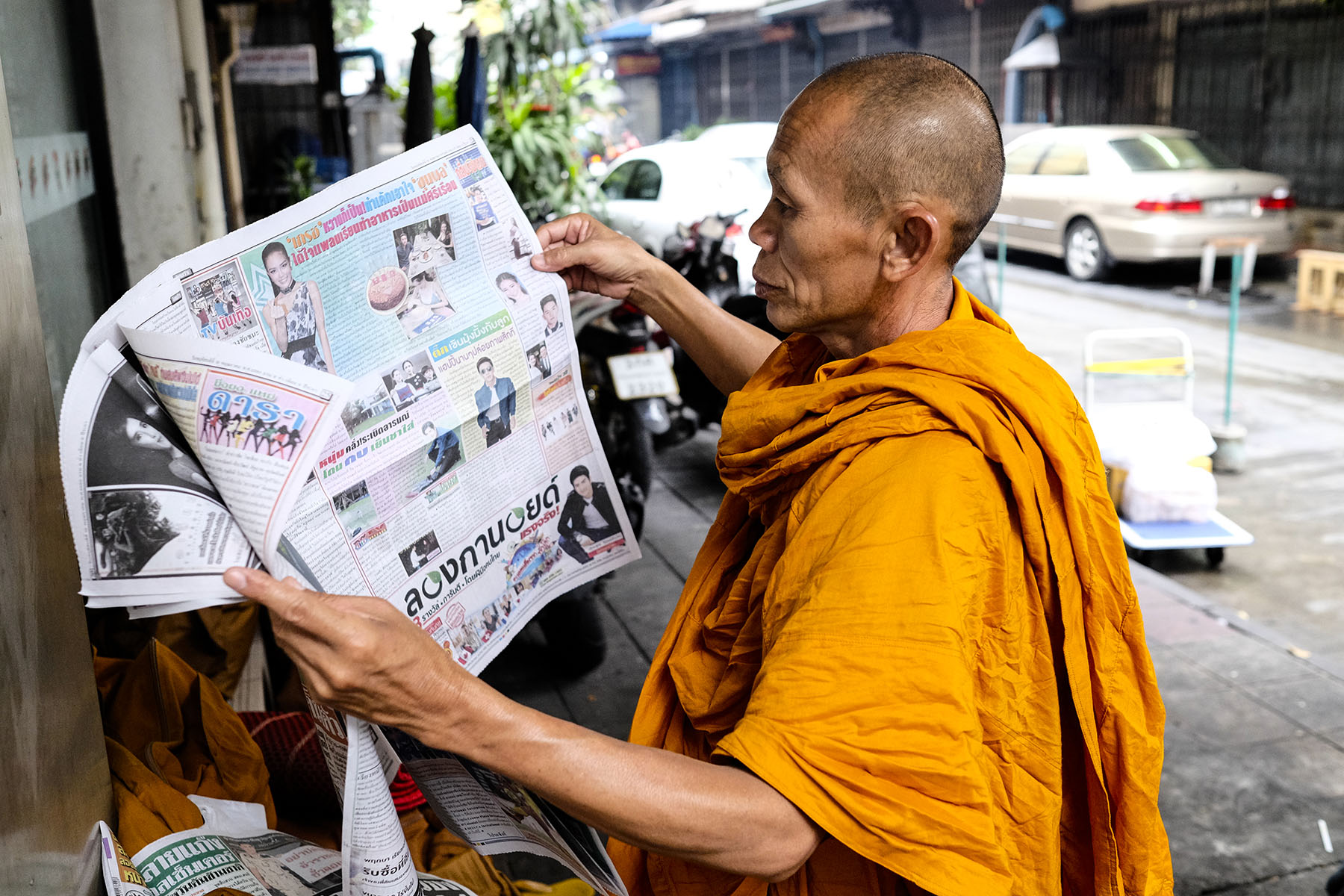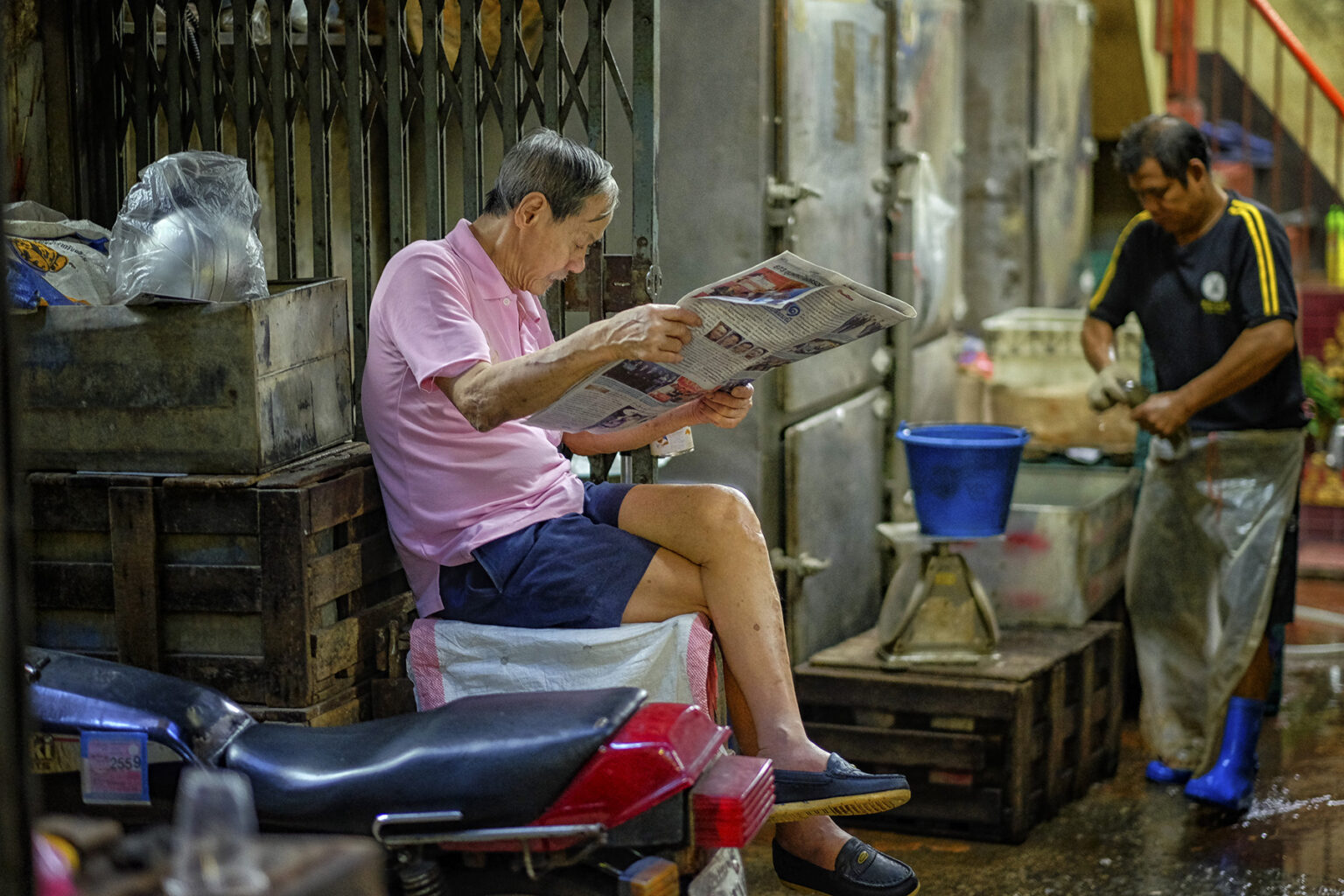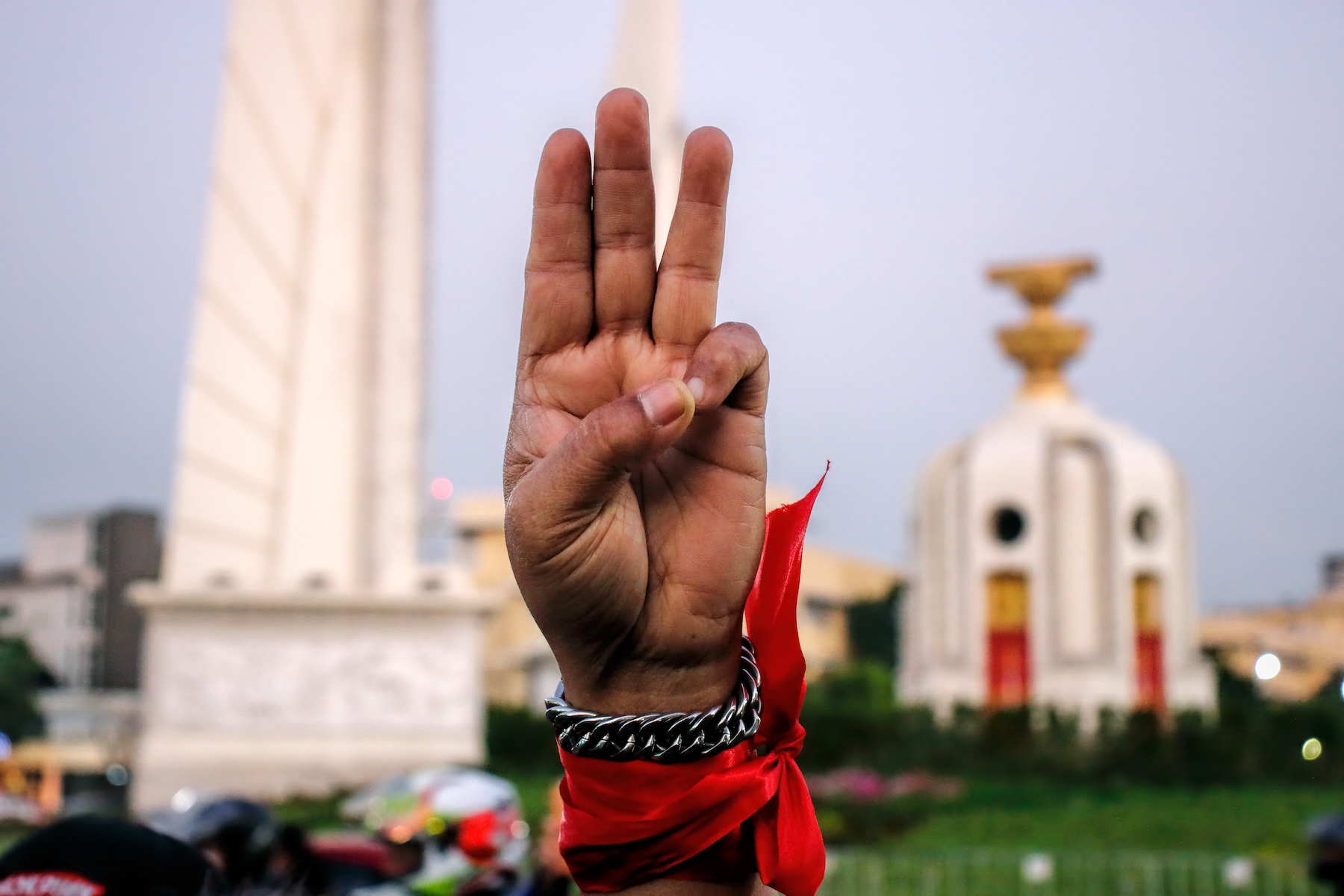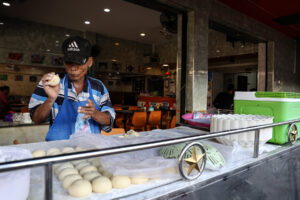As a newcomer to Thailand, you might find that the country is glistening with a rose-colored hue. While that viewpoint is not completely wrong, it’s also important to take a deeper look into the goings-on in the country. Besides, staying on top of the news is not only interesting, but it also helps you gain insight into local politics, finance, and culture.
To help you navigate the media and news outlets in Thailand, this article touches upon the following:
- The media landscape in Thailand
- Where to get news in English in Thailand?
- Where to get Thai-language news in Thailand?
- Thai-language news websites and social media
- Thai-language TV and radio
- Alternative news and citizen journalism in Thailand
- News sources to avoid in Thailand
- Tips on getting reliable news in Thailand
- Useful resources
Ground News
Get every side of the story with Ground News, the biggest source for breaking news around the world. This news aggregator lets you compare reporting on the same stories. Use data-driven media bias ratings to uncover political leanings and get the full picture. Stay informed on stories that matter with Ground News.
The media landscape in Thailand
Like Thai society itself, the media landscape in Thailand is very polarized. The divide primarily exists between mainstream media, which toe the government line, and lower-profile alternative media, which are often pro-democracy and pro-reform. Because of that, the latter often face harassment and censorship.

Interestingly, most people get their news from other sources than newspapers and TV. In 2022, the Reuters Institute found that:
- 91% of people access the news online (including social media)
- 78% source their news only from social media
- Nearly 50% of people get their news from TV
- A mere 15% still access their news through printed media
Radio also remains a popular medium in Thailand.
Much of the printed media is privately owned, while TV and radio are usually controlled by the state. For example, there is the public broadcaster MCOT (อ.ส.ม.ท.) and the military-controlled TV5 (ททบ.5), which operate three major TV channels and a large number of national and local radio stations.
All Thai media report to the regulatory body of the National Broadcasting and Telecommunications Commission (NBTC – คณะกรรมการกิจการกระจายเสียง กิจการโทรทัศน์ และกิจการโทรคมนาคมแห่งชาติ), many board members of which have ties with the military.
Do the Thais have trust in the press?
Most Thais have confidence in the news media, with 51% of people trusting the news most of the time. This is comparable to many other countries; for example, 50% of the Swedish population trusts the media in Sweden and 53% of Norwegians in Norway.
Freedom of the press in Thailand
This high level of confidence is in contrast with the environment of censorship and reduced freedom of the press. Thailand ranks 106th out of 180 countries on Reporters Without Borders’ 2023 World Press Freedom Ranking.
In late 2021, the NBTC regulatory body warned that broadcasters who reported on protests demanding monarchy reform could face fines, suspension, or cancellation of their licenses.
Six months later, in mid-2022, the Thai non-governmental organization (NGO) iLaw reported the widespread use of the Pegasus spyware against academics, activists, journalists, and political party members. In response, the government admitted to using the spyware only in a limited number of cases.
According to a 2023 Human Rights Watch report, Thailand’s ruling military junta routinely censors dissenting views. Online opinions deemed critical of the monarchy and the government are often prosecuted using the 2019 Cybersecurity Act (พ.ร.บ.การรักษาความมั่นคงปลอดภัยไซเบอร์ พ.ศ. 2562). As such, the 2023 Freedom House Freedom Index gives the country a mere score of 30/100 on Internet freedom.
Where to get news in English in Thailand?
English-language newspapers and magazines
International newspapers are hard to come by in Thailand. Certain specialty bookstores, such as Asia Books (เอเชียบุ๊คส์) and Kinokuniya (คิโนะคุนิยะ), will carry major English-language papers from overseas, including The International New York Times, the Financial Times, and The Guardian. However, these are not cheap – and it’ll be more cost-efficient to get an online subscription.

Printed English-language news sources with a focus on Thailand are also difficult to find. However, great places to start include:
- The Bangkok Post (บางกอกโพสต์) – Thailand’s oldest print newspaper and the last remaining English-language news source after all others have moved online. According to Media Bias/Fact Check, it has a mixed level of accuracy, medium credibility, and a right-center bias.
- BK Magazine (นิตยสารบีเค) – a free lifestyle magazine that is printed and distributed in Bangkok
- Citylife Chiang Mai (ซิตี้ไลฟ์ เชียงใหม่) – also a free lifestyle magazine distributed in Chiang Mai
- The Pattaya Mail (this has no official Thai name) – a local English-language newspaper for the Pattaya area, with a print edition available every two weeks
English-language news websites and social media
Most major news publications in Thailand will have an English-language version available online, including:
- The Issan Record (มูลนิธิเพื่อการศึกษาและสื่อภาคประชาชนอีสาน) – a news website for the Issan region (ภาคอีสาน) and it focuses on environmental, political, and social issues in the northeast region
- Khaosod English (ข่าวสดภาษาอังกฤษ) – a liberal-leaning paper that reports on Thai politics, social issues, current affairs, culture, and entertainment
- The Nation (เดอะเนชั่น) – an online-only newspaper since it ceased its print edition in 2019. It has a reputation for high levels of accuracy and a left-leaning bias.
- Prachatai English (ประชาไทอังกฤษ) – the English-language site of the independent newspaper Prachatai (ประชาไท)
- Thailand News (ข่าวประเทศไทย) – the country’s oldest online news site, covering Bangkok, Thailand, and Southeast Asia
- Thai Examiner (no Thai language name) – an English-language news site specifically targetting foreigners in Thailand
- Thai PBS World (ไทยพีบีเอสเวิลด์) – the English-language website of the Thai PBS TV channel. It’s currently publically owned, although it has changed hands several times over the years.
Many Thai residents – both expats and locals alike – access the latest news through social media. Especially Facebook is popular, and each city will have at least one Facebook group where they share local news and information. There may also be some local English-language groups if you’re living somewhere with a lot of foreign residents.
As with all social media, make sure to take the factual accuracy of any information shared with a pinch of salt. These groups are typically only useful for day-to-day news, such as road closures or weather warnings.
English-language TV stations
There aren’t any English-language TV stations based in Thailand. As such, you’ll have to source your English-spoken news from an international station. For example:
- The Singaporean Channel News Asia (CNA – ช่องข่าวเอเชีย) is available as part of many TV packages and covers news from across Asia, including Thailand. Its coverage is generally factually very accurate and free of political bias, making it a good place to get news from the region.
- International news channels like CNN (ซีเอ็นเอ็น), CNBC (ซีเอ็นบีซี), NHK, and BBC News (ซีเอ็นบีซี) are available via various TV packages in Thailand.
Where to get Thai-language news in Thailand?
National and local newspapers and magazines
As in many other countries, newspapers are waning in popularity in Thailand. However, they are often a good and reliable source; in contrast to broadcast media, most newspapers are privately owned and have less government oversight than TV and radio.

One thing to note about Thai newspapers is their love of sensationalist coverage. You will often find quite graphic images of car accidents or other violent incidents in the papers. So, if you’re at all squeamish, reader discretion is advised.
The national newspapers in Thailand
Some of Thailand’s most popular national newspapers include:
- Thai Rath (ไทยรัฐ) – according to the Reuters Institute, the most trusted daily newspaper with the widest reach. Its coverage is a mix of politics and sensationalist news.
- Khaosod (ข่าวสด) – a daily newspaper with the second-highest readership in Thailand. It mixes sharper political coverage with popular sensationalist news and focuses more on the north and northeast than many other newspapers.
- Daily News (เดลินิวส์) – a print newspaper with the third highest reach, with a focus on sensationalist articles.
- Matichon (มติชน) – positioned as a more serious and upmarket newspaper compared to the more sensationalist papers. It covers more politics and has a progressive, moderate bias.
- Thai Post (ไทยโพสต์) – the more conservative and nationalist serious newspaper, in contrast to Matichon.
Regional or local newspapers
The number of local and regional newspapers has declined in recent years. One remaining example is The Korat Daily (คนอีสาน, Kon Isaan), which covers issues in the Issan region.
Specialist magazines and newspapers
Many Thai magazines and specialist newspapers have now moved online, including:
- Bangkok Biz News (กรุงเทพธุรกิจ, Krungtep Turagit) – a newspaper and website focused on business and finance
- Dara Daily (ดาราเดลี่) – covers entertainment news (the Thai word dara [ดารา] means celebrity or star)
- Sarakadee Magazine (สารคดี) – positions itself as a documentary magazine, focussing on nature, culture, society, history, art, science, and technology
- Silpa Wattanatham (ศิลปวัฒนธรรม) – an arts and culture magazine
Thai-language news websites and social media
Nowadays, people in Thailand (and elsewhere) get the bulk of their news online, whether that’s through social media or news websites. The most popular sites are generally websites of major newspapers or TV stations, including the ones listed above.

Other popular sites include:
As said before, around 78% of the population (2022) gets their news from social media. According to Infoquest, the most popular social media channels in Thailand were Facebook and Line. TikTok (ติ๊กต๊อก) has also grown in popularity, with 79.6% of people using the social platform. Another popular option for getting news is YouTube.
While fake news on social media has been a problem for a long time, it became particularly bad during the COVID-19 pandemic. There was an explosion of social media posts containing rumors and fake news about ‘cures’ for COVID-19, imminent lockdowns, and risks associated with wearing facemasks.
It’s always advisable to check multiple information sources before clicking share on a certain social media post.
Thai-language TV and radio
Thai radio and TV are either owned by the state or military or are tightly regulated by the government.
There are hundreds of Thai radio stations, including many local and regional stations. Many residents will source their news from there, in between listening to music. Two of the larger stations are:
- News Family Radio 106 (วิทยุครอบครัวข่าว ส.ทร.) – a popular national news and entertainment station
- Radio Thailand (สถานีวิทยุกระจายเสียงแห่งประเทศไทย) – operated by the Government Public Relations Department (กรมประชาสัมพันธ์), this radio network has three national channels and 65 regional channels
Thai TV has switched to completely digital. There are currently over 20 Thai-language channels, including:
- Channel 3 HD (ช่อง 3 เอชดี) – a commercially owned, free-to-watch news channel
- Channel 7 HD (ช่อง 7 เอชดี) – a news channel controlled by the Royal Thai Army (กองทัพบกไทย)
- Thai Rath TV 32 (ไทยรัฐทีวี 32) – a subsidiary of the aforementioned Thai Rath newspaper
Alternative news and citizen journalism in Thailand
While Thailand has a long history of citizen journalists – especially among young activists – it also has a track record of silencing these voices. Alternative news sources often face harassment by the authorities and are regularly threatened with suspension and prosecution.

Reliable news and information are currently (2023) still available at:
News sources to avoid in Thailand
Fake news and media bias are big problems in Thailand (as in many other countries). Only 29% of the population believe that the media is free from undue political or governmental influence. That said, surprisingly, 53% of Thais trust the media in general.
According to the Global Disinformation Index, only two Thai news sources had a low risk for disinformation, while all the others had a medium risk or higher. Unfortunately, the research from 2023 doesn’t state which publications are highest risk.
Additionally, there are no accurate figures on which publications in Thailand are the least trustworthy. It’s, therefore, important to always consider the bias of the source. A lot of mainstream Thai media tends to be sensationalist, and fact-checking leaves much to be desired.
Tips on getting reliable news in Thailand
There are some resources out there specifically designed to help you assess news articles and sources for accuracy, bias, and reliability. Some of the services operating in Thailand include:
If you want to ensure the news you’re getting is as reliable as possible, you should also consider the following:
- Check information from multiple sources, ideally including ones with different political biases
- Ask trusted friends or locals for their recommendations for news sources (however, be warned not to share any dissident opinions yourself)
Educating yourself on media bias and media literacy can also help you better judge the news you consume.
Useful resources
- National News Bureau of Thailand (NNT, สำนักงานข่าวแห่งชาติ) – the official state-backed source of English-language news in Thailand
- NBTC – the official broadcasting and telecommunications regulatory body





